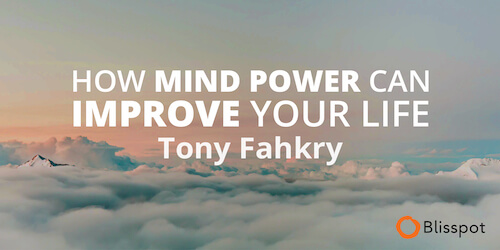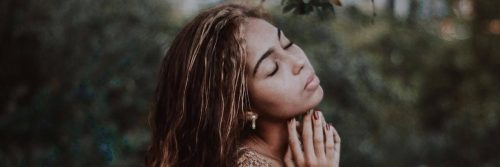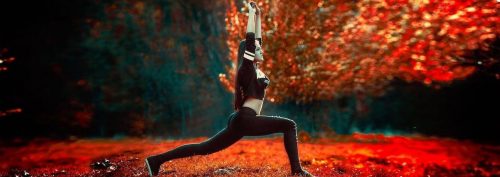Reframe Negative or Limiting Self-Talk
“If you consciously start to change the words you use, you WILL start to change the way you experience your life.” ~ Emmet Fox
Mental diet—an idea that may improve your life. I know that’s a big claim, and it might seem unrealistic at first. All I ask is that you read this article and practice what I outline for at least seven days. That’s your commitment to test whether it works. Don’t just read and carry on as usual—take action. It’s only a week, with the potential to improve your life. In the end, only you will know whether this mental diet works for you.
Could you make that commitment and take a leap of faith?
I want to ask you:
- Do you often engage in inner conversations with yourself about other people or circumstances throughout your day?
- For example, if you had an argument with your partner, room-mate, colleague, boss or anyone else, do you replay that conversation in your mind?
- Do you have inner conversations about your self-esteem, career, health, finances or anything else? Here’s what I mean by self-talk; the inner conversations we have with ourselves about negative experiences. These conversations create our reality as we know it. Most people want to live a purposeful life. Perhaps you want to attract a better relationship or improve your career, health or finances? Maybe you’ve experienced repeated failures and setbacks?

It is my experience that our inner conversations create the conditions of our life. If you believe in the Law of Attraction, you ought to be intentional about what you think about. For that reason, I invite you to undertake a mental diet for seven days and notice any changes that occur within that time.
Let me define what I mean by a mental diet, because this is important. A mental diet means re-framing negative or limiting self-talk. It involves avoiding negative news and social media. It means avoiding anything that negatively influences your mental well-being. For example, if you want to be in a loving relationship and you listen to sad love songs; Stop it! This can affect your subconscious mind and create a reality you don’t want.
What I’m proposing here is not a new concept, in fact it was taught by New Thought authors such as Neville Goddard, Emmet Fox & Dr Joseph Murphy. The premise here is the universe eavesdrops on your conversations with yourself and creates your reality around it.
Negative self-talk about others is addictive, and we can get stuck in this cycle because it feels good. If you had an argument with your partner, you might replay the conversation and give them a piece of your mind (pardon the pun). You replay the conversation day in day out, only to find your relationship doesn’t improve; it gets worse. This is because we are creating these conditions; unaware our inner conversations are building our reality around it.
The American New Thought author Neville Goddard wrote: “Everything is a manifestation of the mental conversations which go on in us without our being aware of them. But as civilized beings, we must become aware of them and act with a purpose.”
Are you with me so far?
Are you willing to accept that what you think about has the potential to create your reality?
Create Your Reality as You Like it to Be
Talking to oneself is a habit everyone indulges in. We could no more stop talking to ourselves than we could stop eating and drinking. All that we can do is control the nature and the direction of our inner conversations. ~ Neville Goddard
Similarly, through self-talk, we might find ourselves in a grim mood for no reason. Is this something you’ve experienced? I know I have. I realised my inner talk was creating these bad moods. It was as though I was physically interacting with this person but in my mind, which contributed to my foul mood. When I stopped these inner conversations, my circumstances shifted dramatically. What I’m proposing is for the next seven days, keep a journal or download a habit tracker app on your phone and track your negative inner conversations.
- If a negative thought emerges, simply say to your mind, STOP!
- Thank your mind (say: “thanks mind, I’m okay” and bring your attention back to the present moment).
- Observe your thoughts by saying: “I’m noticing I’m experiencing a thought that….
- Label your thoughts (e.g., not useful, judgement, fear, worry). You can also do this with emotions (e.g., here is guilt).

Be vigilant with this exercise because negative thoughts which you’ve repeated for weeks, months or even years won’t subside by themselves. It requires shifting your attention and breaking the cycle of negative thinking. This process is called Cognitive Defusion, which is a CBT practice to unhook the mind from difficult thoughts.
Once you’ve gone through the four steps, it is important to create empowering thoughts to fill its space. If you replay an argument with your partner, go through the steps above and imagine or revise the interaction by having a pleasant conversation with them. Feel your way into the interaction and repeat it, so it takes on the flavour of being real. The real benefit of the exercise is that you are priming your subconscious mind to attract a reality as you intend it to be.
I invite you to undertake this exercise of creating a mental diet for at least seven days and evaluate whether it becomes a lifelong habit. I realise what I’m proposing here may seem impossible, but with small steps, you can change your inner dialogue and influence your life for the better. Start with seven days and observe your thoughts, then evaluate the situation at the end of that period. After all, what we think about, we bring about, and a mental diet is an effective way to reorganise your thinking and improve your life.
To learn more about how to create a mental diet see: How to Improve Your Mind Power








